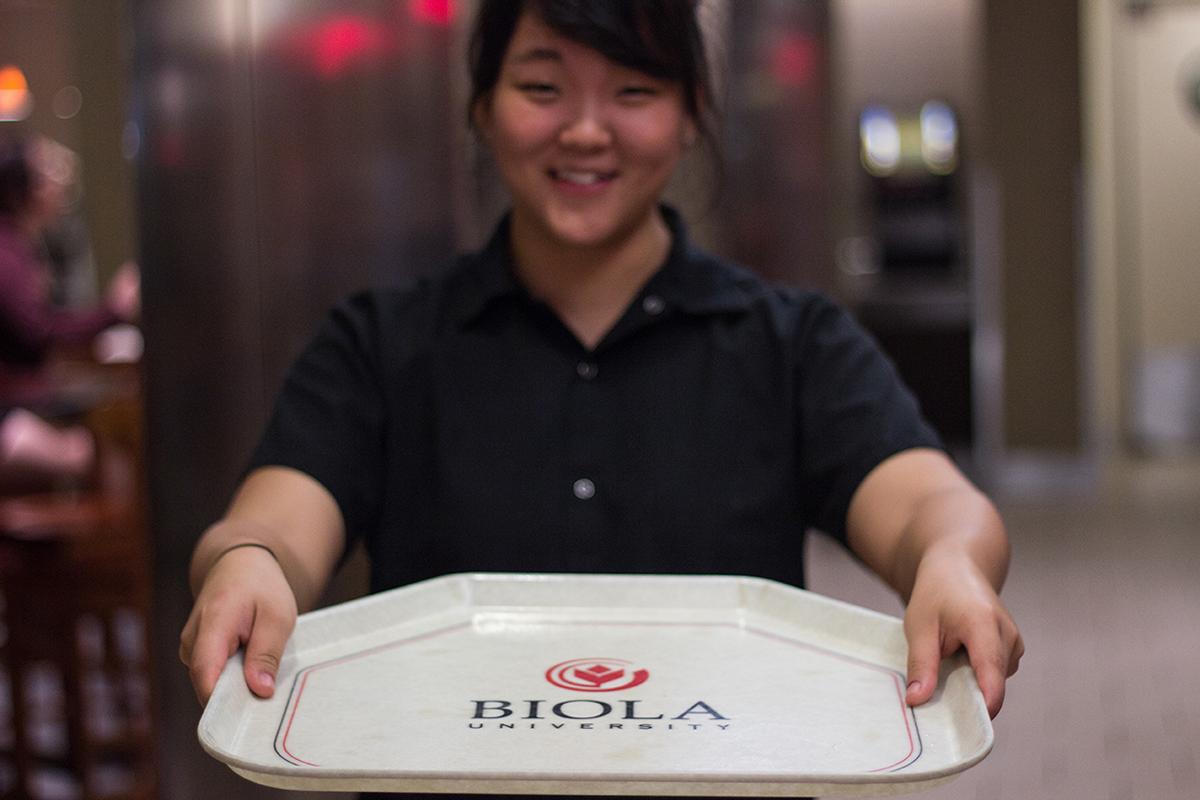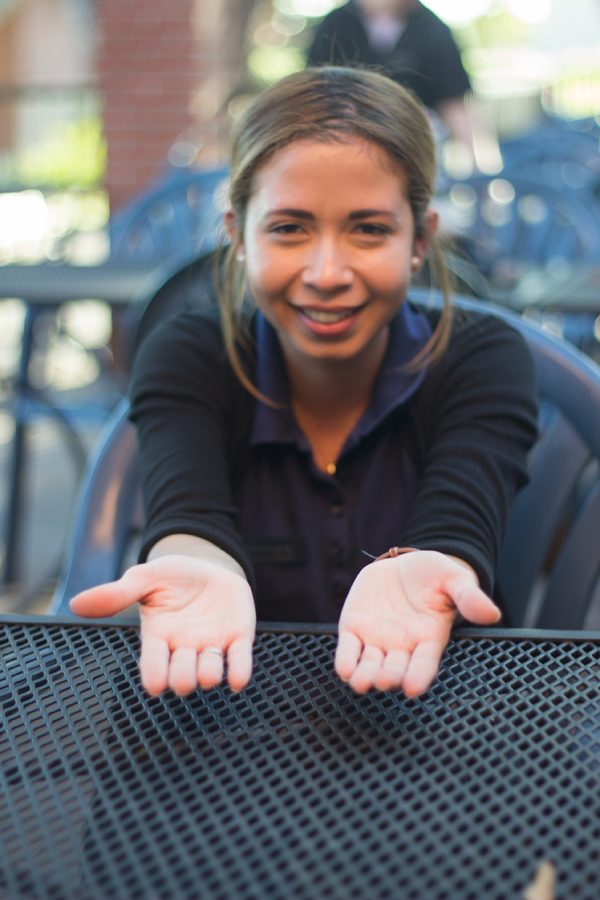Students grab meals in the cafeteria nearly every day and may not give a second thought to the employees surrounding them. Sometimes they become just another worker in a black uniform. However, the cafeteria workers form a group of individuals with an assortment of backgrounds who work together to serve the Biola community.
Executive Chef John Rose comes to Biola with a full resume of food service experience. Rose worked eight years on passenger ships and cruise liners for the Merchant Marines, a civilian-owned fleet that works in commerce and transports cargo and passengers. After this, Rose moved from Northern England to New York and eventually to California, working in various restaurants and opening his own restaurant along the way.
Rose says his daily tasks involve ordering, checking staff coverage, checking inventory and adjusting the menu if needed, as well as helping other chefs with cooking. He also handles some of the comment cards posted by students.
“We get good comments, bad comments. We get great suggestions. I just recently starting answering the comment cards myself because we got a couple complaints, and I came to the conclusion that people maybe think they’re not being heard, but they are,” Rose said.
While they cannot respond to everything, they remain open to suggestions, Rose said.
INTERACTIONS IMPROVE ROUTINE FOR STUDENT WORKERS
For junior pre-health care professional major Christina Chin, the interactions between co-workers make the routine of her work in the cafeteria more enjoyable. She also feels comfortable approaching the chefs, asking them questions and interacting with them.
Working with students can create a completely different situation from interacting with fellow cafeteria workers who may not be students. Sometimes this interaction can prove difficult.
“They’re not always rude or ungrateful, inconsiderate almost, but you know, people have their bad days, and you can happen to catch them on their bad days, so we just try to be 100 percent happy, you know service-like,” said Chin.
Chin emphasized the importance of working without expectations.
“For students who this is their first job, it’s a good quality to have, learning to be attentive, be patient and kind to people who aren’t always going to be the same to you and giving without expecting anything back. It’s good to learn at this point in college and in life,” Chin said.
This attitude reflects the employees’ commitment to serve others, even if others do not recognize their actions or even if they experience ingratitude from students. Senior psychology major and student supervisor Camila Matus explained that serving other students varies, as it depends on the needs of students and if they are able to help them with what they need.
“Sometimes, I would say there is a lack of gratefulness from the students, and that is a little difficult to see,” Matus said. “But also sometimes you encounter students who are really wonderful and grateful for the service. So it varies, not always awful, not always wonderful, it’s a spectrum.”
Matus expressed that despite a varied reception from students, they do their best to serve students well.
“It’s good, we try our best to provide good service, and too just be here for the students in any way possible, in terms of food service of course,” Matus said.
This job, though perhaps challenging at times, gives student employees the opportunity to serve others, connect with a diverse group of people and in general learn how to interact in a team setting.
COMMUNITY AT THE CAF
Although it requires hard work, this job also rewards its employees. Across the board employees view working at the Caf positively.
Maria Martinez, who students would probably recognize from their morning trips to the Biola Scramble, says she loves working at the Scramble because she loves working with the students.
Sergio Avina, the sous chef, also remarks positively on his job. He mentions that he stays available when needed. He loves his job, as he loves to cook. In fact, he cooks during his free time and for family holidays.
Although all employees may not work here because they love to cook, they recognize the value of learning to work with a varied group of people for the Biola community. In fact, a sense of community exists between both student and non-student Caf employees, said Myra Arteaga, Bon Appetit Cafe manager.
“We get to have a good community here between [the] outside, Bon Appetit, and students,” Arteaga said.
This community impacts the way the cafeteria runs. With good leadership, an awareness and appreciation of their diverse team, and a commitment to service, Biola’s cafeteria sets itself apart as something more than simply another college cafeteria but as what students know as the Caf.








